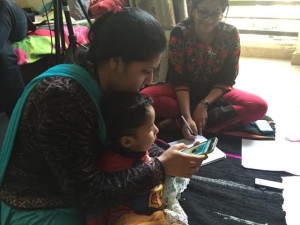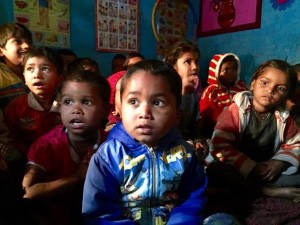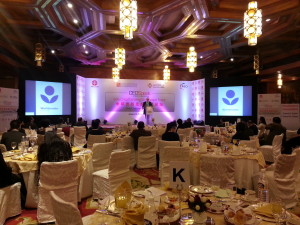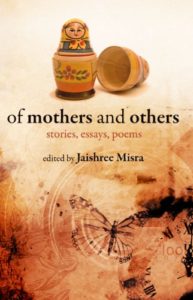Worldreader in India
 Worldreader is actively seeking strategic partnerships with publishers and authors in India. Today it is being accessed by over 6 million readers in 69 countries, providing them with book titles in more than 43 languages. Worldreader would like to discuss a non-exclusive contract for publishing licenses for good, addictive and evergreen content for children, young adults and adults/women especially in Hindi and English. Given that the Worldreader platform supports multi-lingual formats the content could be across other Indian regional languages too. These texts could be across genres and reading segments– picture books, chapter books, bilingual books for children, stories, anthologies, fiction, translations, non-fiction, spiritual, health, cooking, memoirs, biographies, etc. Please email: jayabhattacharjirose1 at gmail dot com . For more information on Worldreader, please see the note below.
Worldreader is actively seeking strategic partnerships with publishers and authors in India. Today it is being accessed by over 6 million readers in 69 countries, providing them with book titles in more than 43 languages. Worldreader would like to discuss a non-exclusive contract for publishing licenses for good, addictive and evergreen content for children, young adults and adults/women especially in Hindi and English. Given that the Worldreader platform supports multi-lingual formats the content could be across other Indian regional languages too. These texts could be across genres and reading segments– picture books, chapter books, bilingual books for children, stories, anthologies, fiction, translations, non-fiction, spiritual, health, cooking, memoirs, biographies, etc. Please email: jayabhattacharjirose1 at gmail dot com . For more information on Worldreader, please see the note below.
Worldreader ( www.worldreader.org ) is a non-profit organization with the mission of ‘providing digital books to children and families in the developing world. It was established in 2010 by Colin McElwee and David Risher. Worldreader is on a mission to bring digital books to every child and her family, so that they can improve their lives.It focuses on enabling digital reading especially using the mobile platform. The mantra is “Books for All”. Today it is being accessed by over 6 million readers in 69 countries, providing them with book titles in more than 43 languages. Another plus point in Worldreader’s favour is that it supports multi-lingual formats. It firmly believes that “Literacy is transformative”.
In fact Worldreader is one of Fast Company’s most innovative nonprofits of 2016 and won the GLOMO Award 2016 for the best mobile innovation for education. Even the UNESCO report on “Reading in the Mobile Era” highlights Worldreader’s programme. ( http://unesdoc.unesco.org/images/0022/002274/227436e.pdf )
Worldreader is now in India. It has been launched in India with its mobile reading to children programme or mR2C.
It is a two-year pilot in Delhi NCR. In collaboration with select NGOs as implementing partners mR2C seeks to promote pre-literacy skills by encouraging parents to read to and with their young children (age 0-6) and by empowering them to do so by giving them access to a free digital library of high quality, locally relevant books and educational materials via their mobile phones. But Worldreader is focussing on all reading segments and age groups: from toddlers – children – young adult — adult literature. Given how many people, especially women, own a mobile and are willing to charge it first, despite not having ready access to water or electricity makes the idea of delivering books via mobiles an attractive proposition.
The organization uses e-readers, mobile phones and other digital technology to reach readers in more than 69 countries, providing them with over 28,500 book titles in 43 languages ranging from Afrikaans to Hindi. The e-book titles cover a spectrum of reading materials, ranging from beginner readers learning to read, to students and teachers accessing educational materials, to those reading for pleasure. So far it has reached more than 245 schools and libraries; 1,110,196 people reading every month; 5,653,216 people reached since 2010 and since its programme was launched in India, it has 92,698 active readers online ( Dec 2015). It works with 180 publishers to acquire and digitize compelling and relevant content for readers. The non-profit also works with donors, organizations, communities and governments to develop and digitize local and international books, as well as manage logistics and support. It has digitized more than 5,000 titles from African and Indian publishers. They are headquartered in San Francisco, California and have offices in Europe and Africa.
Through an internet-connected mobile device (feature and smartphones), children and families can read e-books with the organization’s reading application, called Worldreader Mobile. 250 million children of primary school age cannot read and write. 774 million people around the world are illiterate. 171 million people could be lifted out of poverty if all students in low‐income countries left school with basic reading skills – that is equivalent to a 12% drop in the number of people living on less than $1.25 a day. Geographically ¾ of illiterate adults worldwide are in sub-Saharan Africa and Southwest Asia. 2 out 3 illiterate people are women. It is known that readers in developing countries are primarily male but by removing cultural barriers that prohibit or discourage women from owning mobile technology and training women (as well as men) how to use basic mobile phones to access books and stories increases the possibility of women and girls reading more. This mobile reading in turn positively impacts children since it appeals to (and can benefit) neo-literate and semi-literate adults and adolescents.
Worldreader Mobile is a reading application that provides access to books, educational resources and health information to people with mobile phones. The non-profit launched Worldreader Mobile in April 2012. The app is also available on Opera Software, Microsoft Windows phones, and in Mozilla’s Firefox Marketplace. In partnership with Opera Software, Worldreader launched a Web-browser app, promoted on the Opera Mini platform. Reading on Worldreader Mobile is particularly popular with women, who spend on average 207 minutes reading per month, compared to 32 minutes for men. Research from a 2013 Report by UNESCO, Reading in the Mobile Era, found that reading on a mobile phone increased reading time across all media. There were also clear benefits for children that were not of reading age as one-third of mobile readers in the developing world use their phones to read stories to children.
Worldreader contends that their mission is two-fold: increasing access to books while springboarding local publishers and authors into an international market. It makes content available in English and an array of local languages such as Hindi and Marathi and this is possible without the high costs and other limitations with print. Worldreader defrays digital start-up costs for local publishers, giving readers better access to relevant content, while simultaneously introducing publishers to new markets. Thereby, strengthening your brand, spreading the word about your publishing house and lists and most importantly, allow your books to be accessed by the diaspora too.
At the recently held CEOSpeak organised jointly by NBT and FICCI on 10 January 2016, Ian Denison, Chief Publishing and Branding, UNESCO said “Problem is not enough content is available when content is primary to get reading takeoff actively on digital devices.” He illustrated this in his presentation by showing the Worldreader icon appealing for more good quality content to be available on the platform. In India Worldreader is actively seeking good content / publishing licenses in English and other local languages especially for children ( 0-12 years) and literature for adults.
13 March 2016







